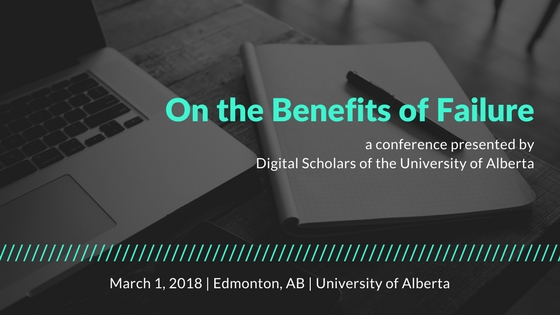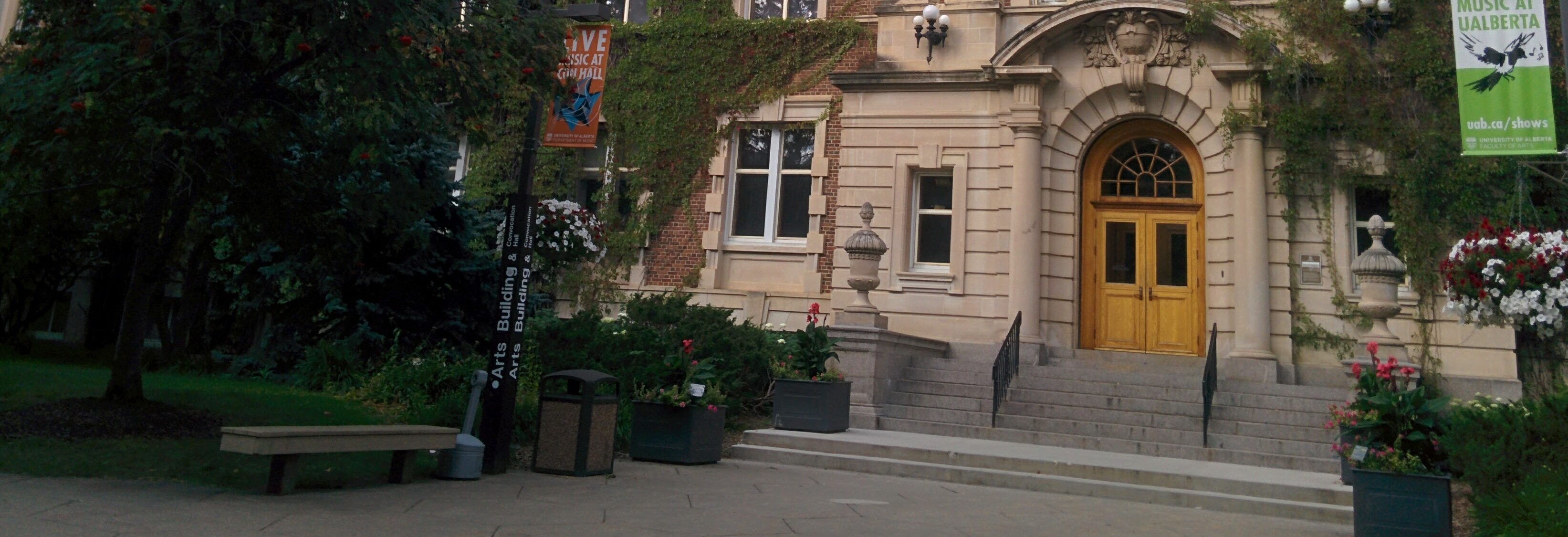Meet our keynote speakers Quinn Dombrowski, Lynne Siemens and Ray Siemens and find out what they think about failure. 
“Failure is inevitable, and an opportunity for learning. Reflecting on failure publicly helps others fail in new and more valuable ways.”
Quinn Dombrowski failed at applying her BA/MA in Slavic Linguistics from the University of Chicago in that academic field, before failing to use her MLIS from the University of Illinois at Urbana-Champaign in a librarian role. Finding a home in central IT, she was part of the program staff of the failed digital humanities cyberinfrastructure initiative Project Bamboo, and was a co-founder of the failed project directory DHCommons, and director of the failed tool directory DiRT. Quinn’s book, “Drupal for Humanists”, was released on the same day as the 2016 US presidential election. Since funding was eliminated for her DH position, Quinn has been exploring new avenues for failure as the service manager for Research IT consulting at UC Berkeley.
“Failure or “not getting what you anticipated” is common within research endeavours. While often seen as negative, this situation can be beneficial and lead to the advancement of and innovation in research direction and objectives.”
Lynne Siemens is an Associate Professor with the School of Public Administration, University of Victoria, with research and teaching interests in academic entrepreneurship, project management, and team development. A team lead for the Implementing New Knowledge Environments project, she also regularly leads digital humanities workshops on Project Management at the Digital Humanities Summer Institute and Leipzig, and serves as a facilitator / consultant to several research teams.
“Failure figures in most all narratives of success, usually as something that is overcome on the way to those narratives’ successful outcome.”
Ray Siemens is a Distinguished Professor in the Faculty of Humanities at the University of Victoria, in English and Computer Science, and past Canada Research Chair in Humanities Computing (2004-15). He is founding editor of the electronic scholarly journal Early Modern Literary Studies, and his publications include, among others, Blackwell’s Companion to Digital Humanities (2004, 2015 with Schreibman and Unsworth), Blackwell’s Companion to Digital Literary Studies (2007, with Schreibman), A Social Edition of the Devonshire MS (2012, 2015; MRTS/Iter, Wikibooks), Literary Studies in the Digital Age (2014; MLA, with Price), and The Lyrics of the Henry VIII MS (2018; RETS). He directs the Implementing New Knowledge Environments project, the Digital Humanities Summer Institute, and the Electronic Textual Cultures Lab, recently serving also as Vice President / Director of the Canadian Federation of the Humanities and Social Sciences for Research Dissemination, Chair of the MLA Committee on Scholarly Editions, and Chair of the international Alliance of Digital Humanities Organizations.


